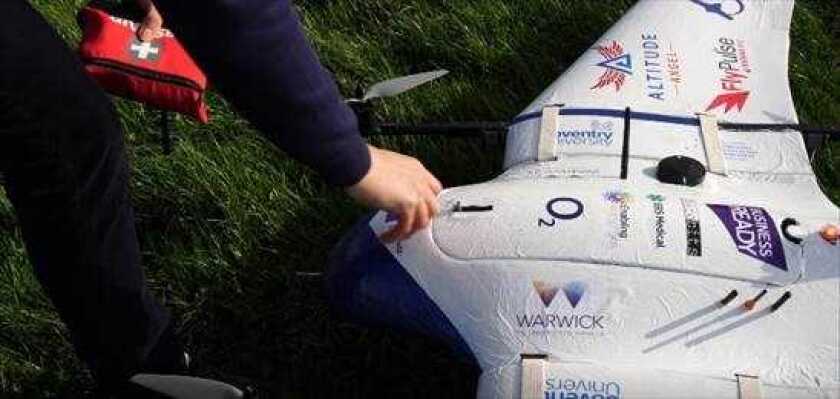Along with Skyfarer, Cranfield University – which has its own airport – Phoenix Wings and unified traffic management solutions provider Altitude Angel, O2 is working to create a national infrastructure that will enable same-day delivery of essential media equipment and supplies, with autonomous drones.
For its role, O2 is working in collaboration with regulator Ofcom to support a six-month project by providing SIM cards that will allow 4G and 5G mobile devices to be used in drones for medical deliveries. This will allow for a safe and reliable real-time control mechanism, making it possible for drones to fly safely over long ranges carrying vital medical supplies.
Derek McManus, COO at O2, said: “We’re delighted to be involved in this trial alongside Skyfarer and our other consortium partners, and hope the project will provide a blueprint for UAV-based logistics to be tested in other areas of the UK and around the world, placing the UK at the forefront of this fast-growing industry.
"This technology not only has the power to support the healthcare system and save lives, but also reduce emissions usually released by traditional medical delivery transport, helping to build a greener future for Britain," McManus added.
The project has received operational authorisation for extended visual line of sight operations (EVLOS) with an overweight unmanned aircraft system (UAS) from the Civil Aviation Authority, which has given the consortium the green light to conduct short-range flight demonstrations as part of the project.
O2 said these will test the capabilities of drones for logistics, with technology trials taking place after Easter (early April) and delivery trials taking place in the summer.
The project is funded by Innovate UK, part of UK Research and Innovation (UKRI), which said it wants to "pave the way for harnessing the power of unmanned aerial vehicles (UAVs) to revolutionise the provision of healthcare services and develop smarter, safer, greener supply chains that have no impact on road congestion and no increase in fossil fuel emissions".





